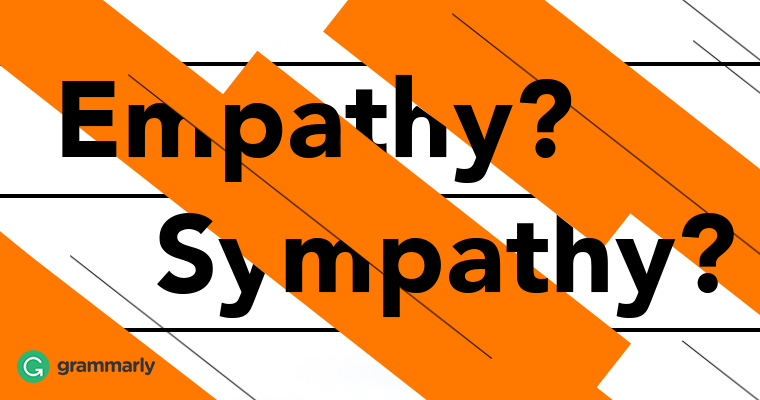
In every language, including English, there are words that people can live without knowing. Words like pain, suffering, and war are ones we wish didn’t have to exist. Additionally, there are words like cabotage, lamprophony, and gelid that are so uncommon you can go through life without ever encountering them.
But empathetic is not a word you should ignore. Yes, it can be confusing—it sounds like pathetic, and another very similar word, emphatic, might add to the confusion—but the word and what it means are well worth looking into.
Defining Empathetic
Empathetic is an adjective that describes something that is characterized by empathy—the ability to understand and share someone else’s emotions. It carries the same meaning as the word empathic, so the two words could be used interchangeably. You could use empathetic in a sentence like this:
“Knowing men in the sense of compassionate and empathetic knowledge requires that we get rid of the narrowing ties of a given society, race or culture and penetrate to the depth of that human reality in which we are all nothing but human.”
—Erich Fromm, The Revolution of Hope: Toward a Humanized Technology
And we can use empathic in a sentence like this:
“The study defines an empathic mindset as one in which ‘good teacher–student relationships are critical for students to learn self-control.’”
—The Huffington Post
The adverb related to empathetic is empathetically, as seen here:
“Cap’s earnestness and discipline meant he’d never be sleekly persnickety, like Iron Man; nor empathetically emo, like Spider-Man; nor morally murky, like the Punisher.”
—Wired
History of Empathy
But we can’t really speak about what it means to be empathetic without looking into the noun from which the adjective is formed—empathy. Empathy is one of those words that owes its form to the ancient Greeks—“empatheia” was the word they used for passions or states of emotion. “Pathos,” the root word of “empatheia,” means feelings, and it’s the reason empathetic sounds a bit like pathetic—overly emotional.
But the original meaning of empathy is not the one people most tend to think of when they hear the word. Empathy came into the English language as a translation of the German word Einfühlung, coined by Rudolf Lotze, a German philosopher. Lotze coined the word as a translation of the original Greek “empatheia” and used it to describe the attribution of spectators’ feelings to works of art, and their consequent valuation of the work of art depending on the emotions they themselves projected on it.
Defining Empathy
Today, we use the word empathy to describe the capacity to understand or identify with other people’s emotions:
“What if instead of lawyering up and assigning blame like we always do, we take a step back in this instance and try a little empathy?”
—CNN
The synonyms for empathy are sympathy, compassion, or even commiseration. The antonyms are callousness and cold-heartedness. Psychopathy is a mental disorder characterized by a severely diminished capacity for empathy or a complete absence of it.
The original meaning of empathy, the attribution of one’s own feelings to objects and animals, is still sometimes used, although rarely.